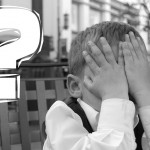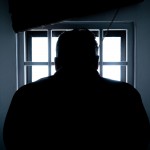I was in my second year of teaching when a boy walked in with two older men for parent teacher conferences. "Which one is your dad?" I asked.
"Both of them."
"I'm so sorry," I said. I stumbled my way through the whole conference. I still cringe about the way that I said "partner" instead of "husband." I was trying to hard to prove that I wasn't being judgmental that I failed to provide the one thing Pedro needed the most: his parents being treated as parents. I still cringe as I think about how I handled that.
Later, I ran into my team in the staff lounge. "That was awkward," a teacher admitted. "Not half as matter as it is for his dads. Every day. No, really, every minute," a teacher pointed out. That moment stuck with me. Sometimes in the midst of my interactions with LGBT friends, I forget about that – not the fact that they experience these things, but that these moments are constant. I live in a world of heterosexual privilege.
Whether a teacher feels comfortable with it or not, children will show up to school with families that break the previous cultural norms. The definition of family has expanded. How a teacher feels about this change is irrelevant. Our job is to care about students and honor their families — regardless of what the family make-up looks like. It’s not a personal choice. It’s a professional responsibility.
In many cases, those families will have experienced things that I’ve never had to deal with as a heterosexual, married man with three kids. Often that child has had to watch the two people who love her the most experience this injustice amid apathy and silence from the community.
What will you do when a kid says "that's gay" as a slur and you know that those words are burning the insides of one of your students? What will you say to a child whose mom has cancer and she's scared that her other mom won't be allowed to adopt her? What will you say to the teacher or the parent or the student who says, "Gays can't be role models?"
If the answer is silence, then it's the wrong answer.








